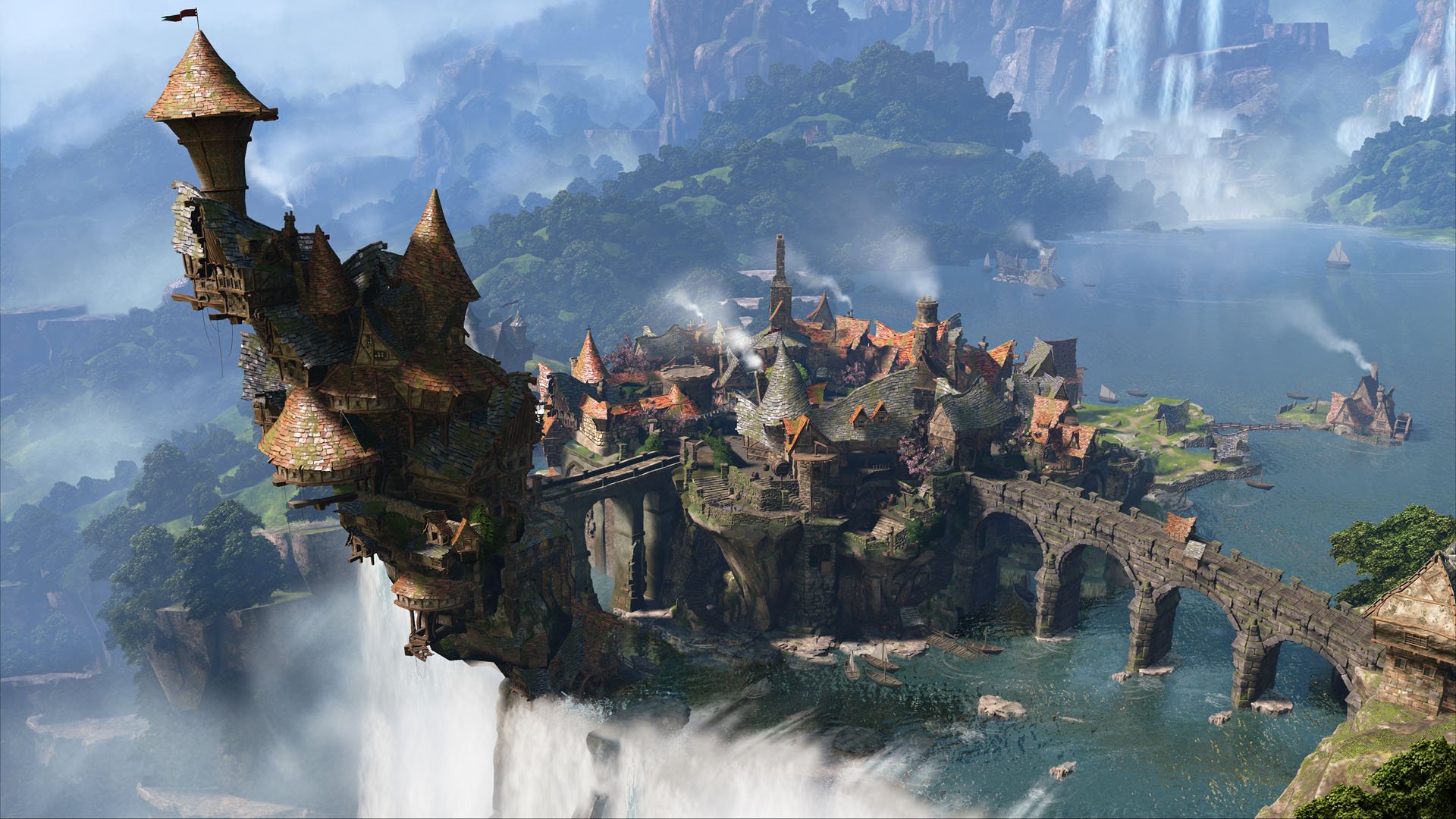Magic in Society
Despite the existence of magic in Hauther today, it isn’t the foundation on which society stands as in the days of the Ancients. The average citizen rarely experiences magic in the form of an incantation, conjuration, or even an enchantment. Instead, most citizens experience magic through an alchemist or apothecary in the form of poultices, salves, or elixirs. The average citizen might visit a Huduun fortuneteller at least once in his life, though even if a particular fortuneteller were authentic, mages debate as to whether the fortuneteller uses actual magic to prognosticate or has a some kind of supernatural connection with spirits who can foresee events. Magician healers and diviners are well established within the Church of Daeus, the dominant human religion, but citizens only occasionally witness their miracles firsthand.
Attitudes Towards Magicians
The Legacy of the Thyrellans
Regardless of the source, it isn’t magic that is mistrusted so much as the magicians who invoke it. The reason for this began with the classification and subsequent condemnation of darcana, the supposed black arts of the Ancients, by the Thyrellan Ministry of Thaumatology. Ironically, it was Argus Cainon, then in the capacity of Head Minister, who was the most assertive about snuffing out this “evil” when creating a very detailed list of what constituted darcana. Of course, once Cainon proved to be a darcanist himself, his list became suspect. The legacy of that list remains, however, with the premise that darcana is “any magic that is bad.” Naturally, this has led to quite a broad spectrum of interpretations as to what constitutes darcana today. What one community considers darcana could just as easily be acceptable and openly practiced in another community. Any magician caught practicing darcana (or sometimes merely suspected of it) is labeled a darcanist and summarily executed. Therefore, magicians are wary of displaying their abilities in unfamiliar settings.
Magicians Across Hauther Today
Although the populace is distrustful of magicians, not everyone is so quick to distrust them, especially ruling bodies. In Casperia and Dussleholm, the governments consider magicians a resource, albeit to be regulated. In Casperia, a quarter has been established for thaumatological universities. So long as the universities promote and teach only arcana, the magic that is considered acceptable by the ruling authority, wizards and mages are allowed to study and work freely. In Dussleholm, magicians are free to ply their skills to earn a living so long as they follow the laws and never practice darcana. In either case, to keep the general population at ease and demonstrate to the local authorities their compliance with the laws, magicians in these places often refer to themselves as arcanists, though in reality this is merely a title for appearance rather than a class of magician.
In addition to secular magicians, the Church of Daeus in both cities houses a number of healers and diviners. Typically, such magicians were either pledged to the church by their families early in life or pledged themselves later on. Their lives are usually spent modestly, working their arts in the name of Daeus, be it tending to the flock or working to achieve the charitable aims of the Church. Therefore, these magicians are more readily accepted by the communities in which they work. Even though most Church magicians typically follow the path of non-violence, there is a small sect of holy magicians within the Church of Daeus known as the Magi who are trained to “protect” the Church and its interests should the need arise. Tales of the Magi often depict them along with their warrior counterparts, the Templar, fighting against the evil machinations of demons and darcanists, making such tales popular around campfires and tavern hearths.
In the outlands, having magic can mean the difference between life and death, though that may only be the case because one has encountered another magician. Also, the Silver Order is quite covetous of magicians both for their combat and research potential. So, often it is their magicians that are encountered throughout the outlands patrolling with their units, guarding caravans, or working with a squad of knights.
What the Krendiri or the Errow believed before they were all but expunged by the Thyrellans is uncertain. Today, nearly nothing is known about the Krendiri, so naturally little is known about their magical traditions. However, if folklore is accurate, the Krendiri favored traditions that venerated their sylvan habitat. As for the Errow, many who show magical aptitude follow in the Hautherian tradition and study in the Magic Quarter in Casperia. However, some mages suspect that the little that is known of the Errow religion shows hints of a complex magical tradition. Understandably, the few remaining Errow priests, known as shamans, hold their traditions closely, leaving much unknown by human scholars.
As far as humans are concerned, the Nokhen typically think of magic as just another force to employ in their craftwork, which has led to the view that their magicians are usually hard at work in smithies or other craft halls. However, there are tales of other Nokh magician traditions within their society, but not much is known. It could be that the dwarves have just as many wizards and healers as humans, but because the Nokhen are quite reclusive, humans haven’t had much opportunity to witness their work.
